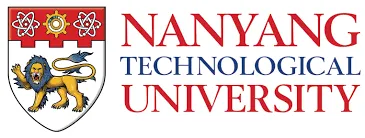The Future of Green Electronics - Interview with Professor Alessio Gagliardi, TUM
MSc Program Green Electronics GIST TUM Asia
During his previous teaching period in Singapore in the joint NTU-TUM Master of Science in Green Electronics, based on the Microelectronics programme, Professor Gagliardi gave answers on the future of Green Electronics in an interview for the September 2016 issue of DIGEST journal.
Prof. Gagliardi's focus is on nano-structured devices and organic semiconductor materials. Today devices based on these materials and their nano-structuring are starting to pass from lab prototypes to real products for the market.
Ever more applications will shortly be on the market, like e.g. organic LEDs for displays, and more skilled talents in both academics as well as in the industry will be searched for.
Interview with Prof. Alessio Gagliardi
tum-asia.edu.sg/future-green-electronics/
issuu.com/tumasia/docs/tum_asia_sept_2016_digest_newslette
Green Electronics
The Master of Science in Green Electronics is a highly specialized programme which is jointly offered by Nanyang Technological University (NTU) and Technische Universität München (TUM).
This programme aims on novel electronic/optoelectronic devices and systems, with particular focus on the energy, sensing, monitoring and manufacturing fields.
Students will gain knowledge of micro-/nano-fabrication technology and advanced theories for renewable energy, power semi-conductors as well as organic semi-conductor devices and systems.
Topics are state of art research and industrial developments, product marketing, international management, patent law and aspects of culture and globalization.
After the 20-month programme, students will be awarded a joint Master’s degree from NTU and TUM.
Successful completion of this programme will equip students with the capabilities in the following technical areas:
- Conventional semiconductor manufacturing technology which includes the materials, devices and manufacturing process.
- Carbon and organic electronics, photovoltaic, sensor and display technology which include the corresponding materials, devices and manufacturing process.
- Green technology for energy harvesting, wireless sensor networks and cyber systems.
http://www.ntu.edu.sg/Pages/home.aspx
https://tum-asia.edu.sg/admissions/graduate/msc-green-electronics/
